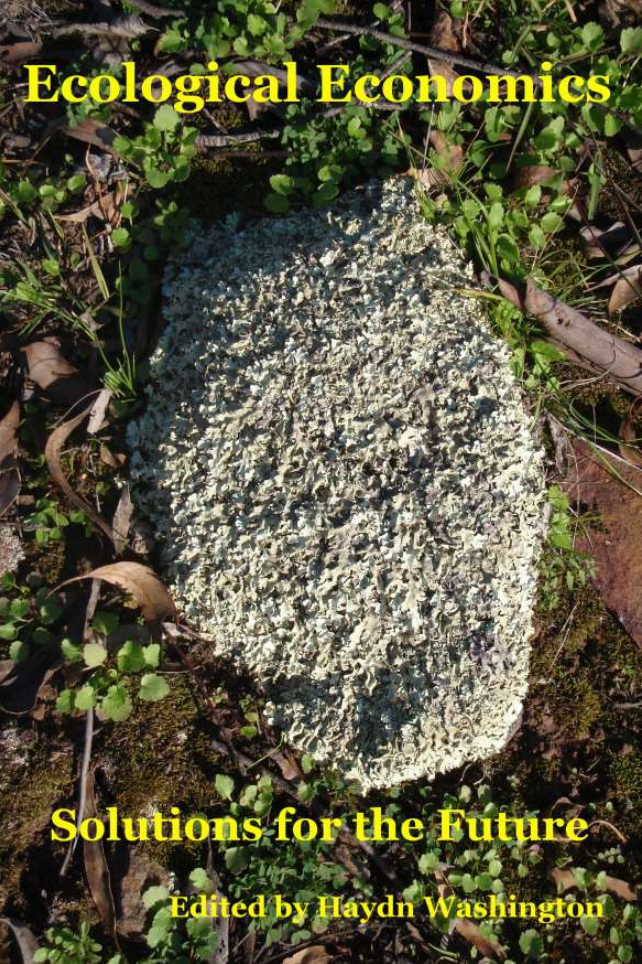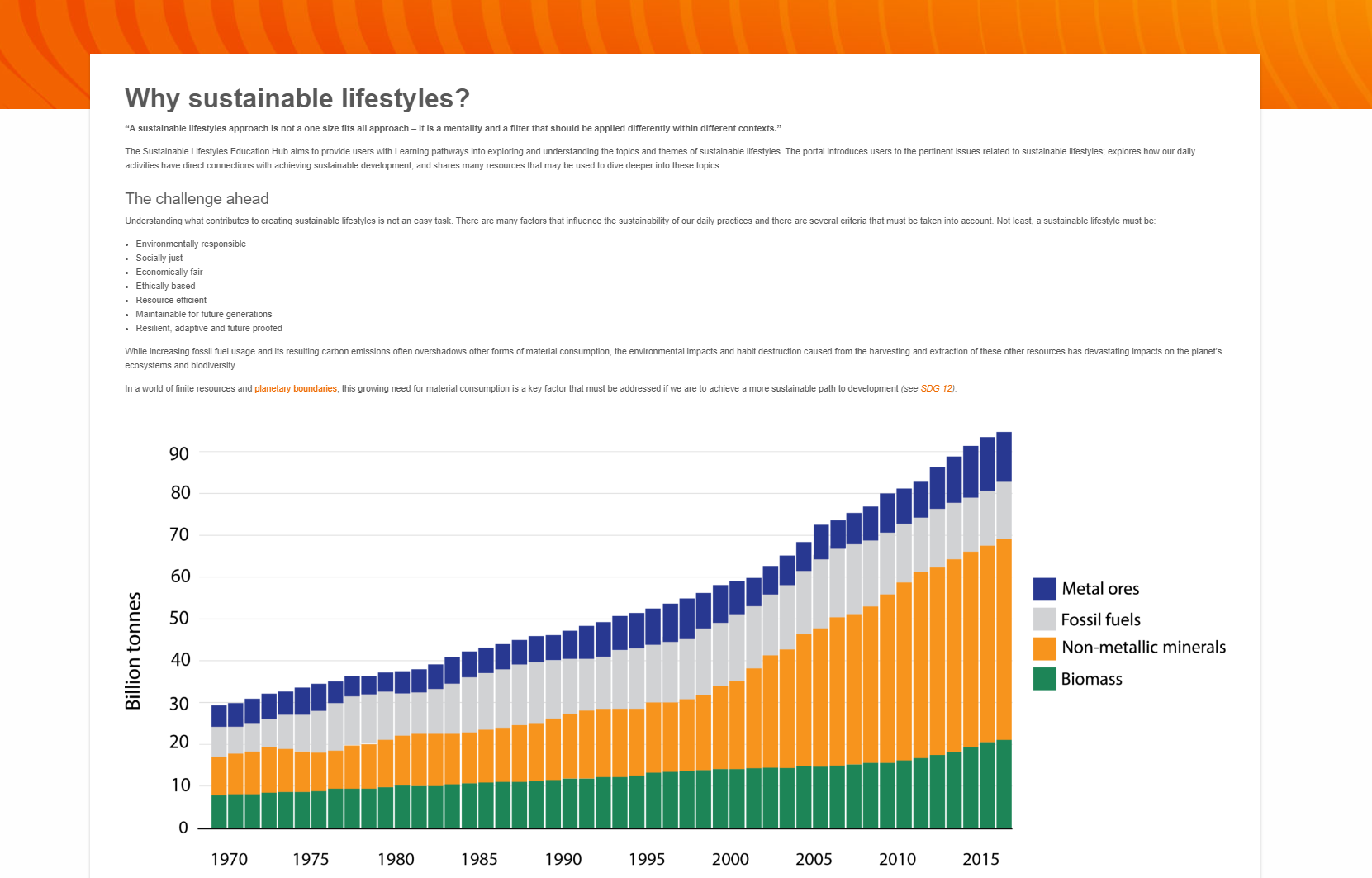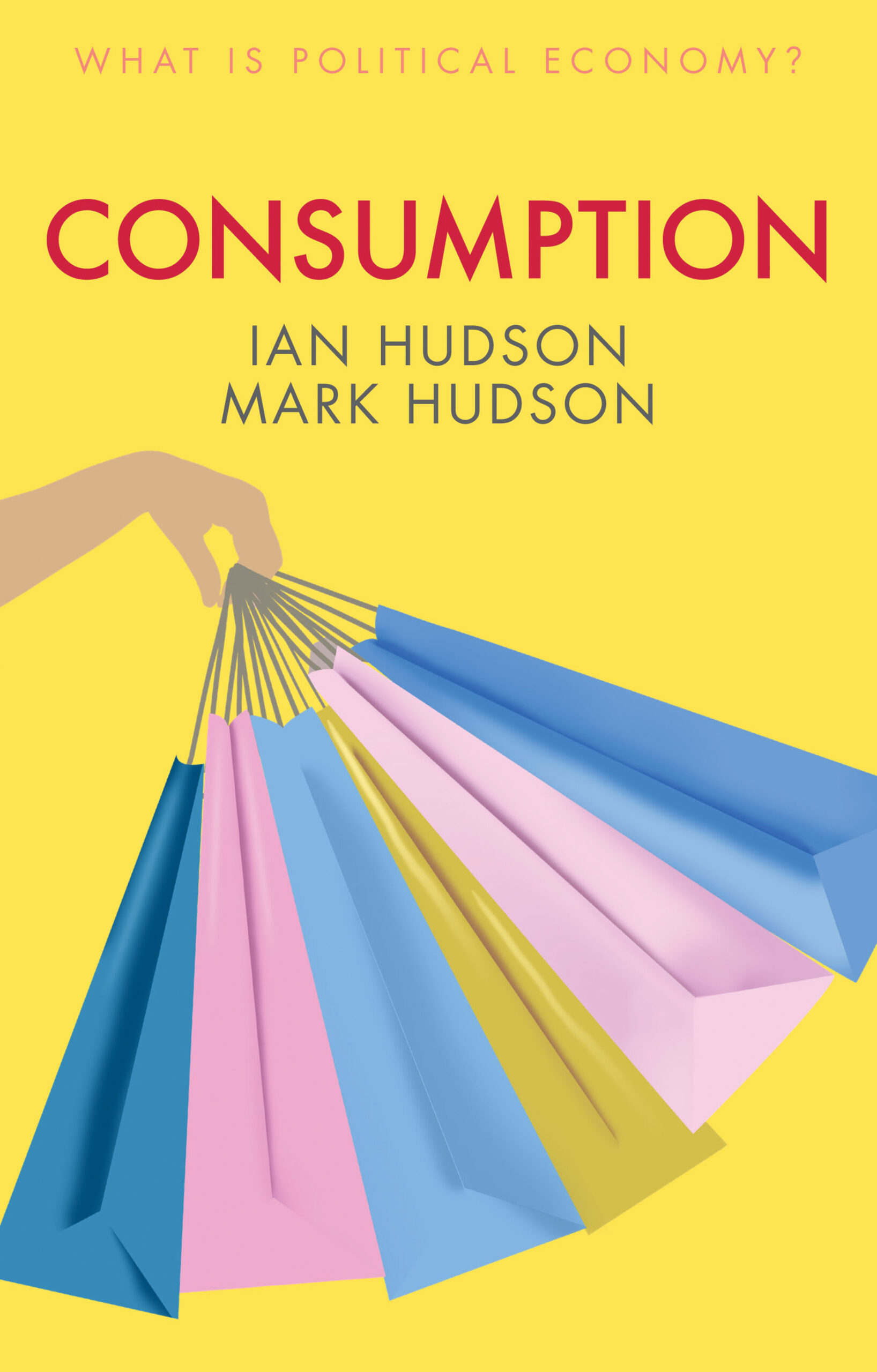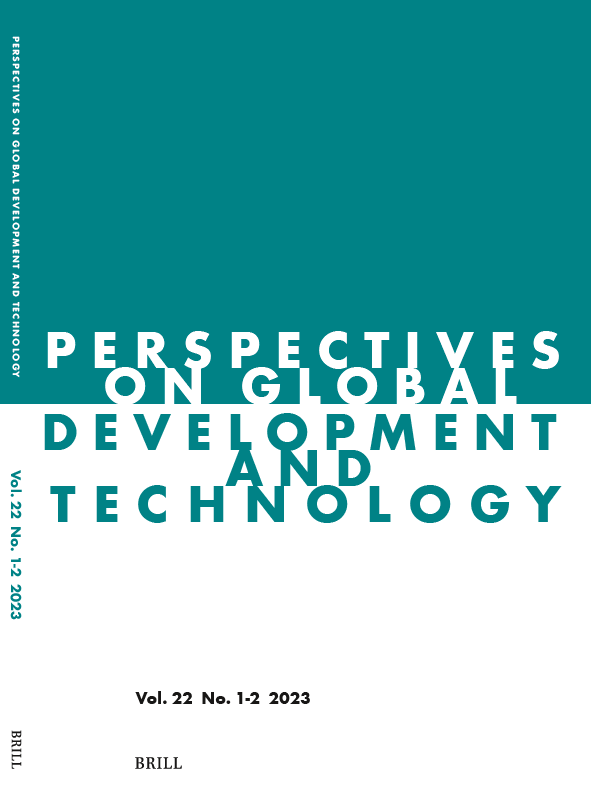User Stories
Data and visualisations provided on www.materialflows.net are meant to support data driven research and (policy) activities. The user stories present selected examples of MFA in practice. If you have your own story to tell, let us know how our website helped you.
Book
Published
2020

[…] there is little acknowledgement of the inherent contradictions between the many goals that require an increase in material flows, and the ecological goals that seek to prevent deterioration of the biosphere.
- Kerryn Higgs
How Sustainable are the SDGs?
Author: Kerryn Higgs
Year: 2020
In the book chapter Kerryn Higgs claims that the UN Sustainable Development Goals still build on the assumption that economic growth is the solution for global problems and that this will not impair or even help achieving ecological goals. In that respect Higgs points out how the defined goals, are inherently contradicting. In proposing the decoupling of economic growth from resource use, SDG 8 implicitly envisions the idea of “sustainable” economic growth. Using a visualisation from materialflows.net, Higgs illustrates how the global demand for raw materials increased throughout the last five decades, proofing that there is no evidence of decoupling global raw material demand from economic growth.
Higgs, K. (2020). How Sustainable are the SDGs? In: Washington, H. (Ed.). Ecological Economics. Solutions for the Future, 109-130
URL: https://anzsee.org.au/wp-content/uploads/2020/07/EESolutionsFutureRoyalDraftJuly2ndFINALEbook.pdf
URL: https://anzsee.org.au/wp-content/uploads/2020/07/EESolutionsFutureRoyalDraftJuly2ndFINALEbook.pdf
Website Article
Published
2023

A sustainable lifestyles approach is not a one size fits all approach – it is a mentality and a filter that should be applied differently within different contexts.
- Sustainable Lifestyles Education Hub
Why sustainable lifestyles?
Author: Sustainable Lifestyles Education Hub
Year: 2023
The Sustainable Lifestyles Education Hub offers different learning materials to explore how lifestyles, including daily (consumption) activities, relate to sustainable development. The article outlines different factors that contribute to sustainable lifestyles, such as environmental responsibility, social justice, and resilience. Raw material consumption is highlighted as a key factor for sustainable development that must be addressed. A visualisation from materialflows.net illustrates the increasing global raw material consumption over the last decades. The article shows that, while material consumption has risen significantly, inequality in access to basic resources has also increased. On average, per capita consumption of raw materials in the wealthiest countries is ten times higher compared to the poorest countries of the world.
Sustainable Lifestyles Education Hub (2023). Why sustainable lifestyles? (Accessed 7.11.2023)
URL: https://sustainablelifestyleseducation.org/why-sustainable-lifestyles/
URL: https://sustainablelifestyleseducation.org/why-sustainable-lifestyles/
Book
Published
2020

A political economy of consumption centres the systemic [point of view]: the needs of a capitalist system for growth, the embeddedness of individual consumption in commodity-specific “systems of provisioning”, and the problems that arise from those systems for people and the planet.
- Mark Hudson, Ian Hudson
Consumption – What is political economy?
Author: Mark Hudson, Ian Hudson
Year: 2020
In their Book, Ian and Mark Hudson provide a critical reflection of the concept of consumption in economic theory and examine its role in the social sphere and its function in modern capitalism. They illustrate how cultural influences and individual preferences shape consumption patterns, and how these are connected to capitalism's inherent drive for profit. The authors also shed light on the often-overlooked impacts of consumption for both individuals and the environment. By showing a visualisation of materialflows.net, they provide readers with an overview of global material consumption.
Hudson, M.; Hudson, I. (2020): Consumption – What is political economy? Polity Books
URL: https://www.politybooks.com/bookdetail?book_slug=consumption--9781509535378
URL: https://www.politybooks.com/bookdetail?book_slug=consumption--9781509535378
Journal Article
Published
2023

[…] the excessive material throughput of the Global North is linked to forms of ecological debt with the Global South.
- Mariko Lin Frame
Integrating Degrowth and World-Systems Theory: Toward a Research Agenda
Author: Mariko Lin Frame
Year: 2023
According to Mariko Lin Frame, much of the research on degrowth has so far mainly focused on the planned reduction of unsustainable material throughput of the Global North. For example, with per-capita material footprint data from materialflows.net, the author illustrates the highly unequal use of resources among different world regions. The author argues that including matters of dependencies, historical developments and unequal exchange in the debate would facilitate a more holistic approach of the degrowth agenda.
Frame, M. L. (2023). Integrating Degrowth and World-Systems Theory: Toward a Research Agenda. Perspectives on Global Development and Technology, 21(5-6), 426-448
URL: https://doi.org/10.1163/15691497-12341641
URL: https://doi.org/10.1163/15691497-12341641
Book
Published
2021

Instead of gradually dematerialising, the global economy has been rematerializing.
- Jason Hickel
Less is More - How Degrowth Will Save the World
Author: Jason Hickel
Year: 2021
In his book “Less is more” Jason Hickel uses data and visualisations from materialflows.net to illustrate the constant need for raw materials, energy and other natural resources by the global economy. As opposed to often proposed growth- and technology-based solutions, Hickel argues that growth will not solve but worsen global ecological degradation. In fact, globally, raw material and energy use, and GHG emissions have been closely linked to GDP growth. Even though data shows that in some areas, or for some periods, decoupling of GDP growth and resource use or related environmental impacts has been achieved, these accomplishments were only of small magnitudes, only temporary, only regionally, and in no way constituting a sufficient shift towards something which some envision as “Green Growth”.
Hickel, J. (2021): Less is More. How Degrowth Will Save the World. Windmill Books
URL: https://www.jasonhickel.org/less-is-more
URL: https://www.jasonhickel.org/less-is-more